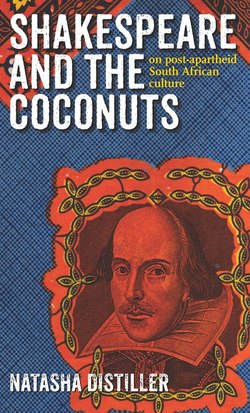Shakespeare and the Coconuts

Реклама. ООО «ЛитРес», ИНН: 7719571260.
Оглавление
Natasha Distiller. Shakespeare and the Coconuts
Отрывок из книги
Distiller examines Shakespeare’s place in South Africa’s education and culture without universalising the contradictory forces that have made that position controversial and is thus able to provide both a fascinating account of current South African culture and a precise analytical model with which to challenge the concept of a single ‘global’ or ‘post-colonial’ Shakespeare.
Kate McLuskie, Emeritus Professor of Shakespeare Studies, The Shakespeare Institute
.....
Shakespeare and coconut logic
There is a long tradition of South Africans appropriating Shakespeare, which goes back to the colonial mission schools. The nature of that appropriation is complex, and involves sociopolitical interactions and aspirations, including specific colonial, South African, incarnations of the dynamics of class mobility and modernisation, their relation to Christianity, to English as a language of social and therefore economic power, and to English Literature as a formalised field of study. South Africans who have entered into this tradition have been seen as selling out to a kind of colonial coconuttiness which enabled the entrenchment of a racist social system, or as transforming the master’s tools in order to dismantle his house. However you want to read their behaviour, the fact remains that they read, loved, and used Shakespeare in their own lives and works. So Shakespeare has an African history, which is as African as any other aspect of the region’s cultural development. To say this is to take a political stand, one which refuses to see colonial history and its aftermath as containable by binaries: coloniser/colonised, oppressor/oppressed, European/ African. I am not for a moment suggesting that the multiple violences of colonial history, the apartheid regime which it enabled, and the ongoing inequalities which are our legacy were or are in any way excusable. I am suggesting, as have many other cultural critics and anthropologists, that human interactions and the artefacts they produce are always complicated. To say that South Africa’s history has always been a history of complicities and complex engagements and influences is not to ameliorate the racist, gendered, classed violence of the region. This book argues that exploring aspects of the ways Shakespeare has been used, appropriated, symbolised, and reproduced in post-apartheid South Africa is one way to begin to see the complexities and paradoxes of our national history. This is a particularly apposite argument now, as raced identities are increasingly reinscribed in public discourse, encouraged by the posturing of some of our leading politicians.
.....